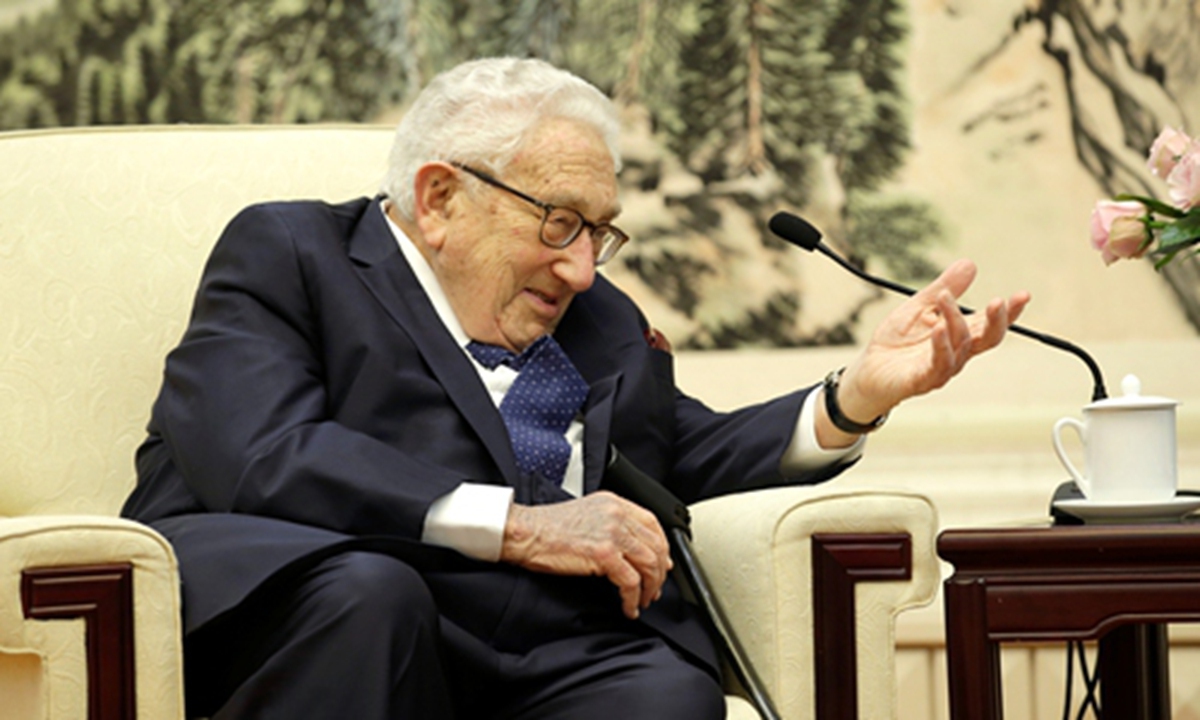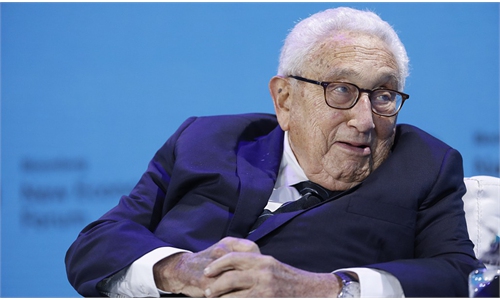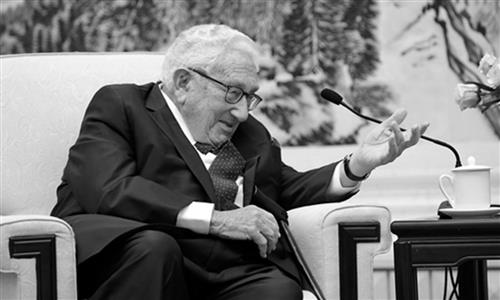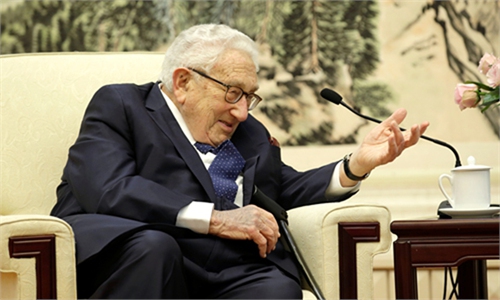
Henry Kissinger Photo: VCG
On Wednesday, former US Secretary of State Henry Kissinger, known for promoting China-US icebreaking and engaging in shuttle diplomacy in the Middle East, passed away at the age of 100. Kissinger's death quickly reverberated around the world. From the initial reaction, the discussion of his death on US and Chinese social media is in stark contrast. Chinese netizens spontaneously discuss Kissinger's diplomatic achievements and positive impact on the world and the China-US relations, while US social media platforms seem to show more banter, or even mockery. An extremely subtle but important difference is that Chinese social media discussions focus on Kissinger's diplomatic wisdom, while American media, such as The Washington Post, when talking about Kissinger's diplomatic achievements, are more inclined to emphasize that Kissinger has long been criticized for being "unprincipled" and "amoral."
Ironically, what The Washington Post criticizes and satirizes Kissinger happens to be his main legacy as a diplomat who fought for the interests of the US and the West: Diplomacy must transcend ideology, domestic politics, and abstract discussions of morality based on so-called universal values, but instead focus on the long-term interests of the nation and the world. This is not a unique theoretical innovation that only Kissinger discovered and understood, but rather the historical accumulation of the long-term diplomatic practice in the world, especially in the West, which is the "common sense of diplomacy" in the general sense. The tragedy of the West lies in the fact that it has constantly destroyed, wasted and depleted the valuable diplomatic legacy left by great strategic thinkers, falling into diplomatic and strategic dilemmas. It does not know how to reflect on it, but continues to blame the so-called "external threats" and "enemies."
The emergence of Kissinger is the outcome of a special historical circumstance: The power of the US still prevailed in the international system, but encountered special challenges and needed to make major diplomatic adjustments; meanwhile, the function of US domestic politics allowed political elites to objectively consider US national interests. Thus, Kissinger was given the appropriate position to implement relevant strategic ideas.
After the end of the Cold War, former US president Richard Nixon's political courage and Kissinger's diplomatic strategy naturally faded away. This was unexpected but made sense.
Kissinger had a great love for history, but for the US' academic community in international relations, his study methods of history, international relations, and diplomatic strategy cannot be considered scientific, nor are there any sophisticated theories. Therefore, after Kissinger left the White House, his diplomatic thoughts and related practices did not transform into corresponding theories. They even became objects of criticism for not being scientific or theoretical enough.
It must be noted that it's Nixon and Kissinger that successfully established US diplomatic relations with China, breaking the ice and helped the US navigate the excessive expansion of the Cold War era by playing a role in extricating the US from the Vietnam War and constructing a relatively stable structure through shuttle diplomacy in the Middle East. However, the US hegemony quickly reverted to a path of excessive expansion, particularly after the Cold War victory. Kissinger also faced criticism for his realist diplomatic strategy, being accused of lacking principles and moral concerns.
Of course, as a diplomat who loves the US, even after leaving the White House, Kissinger still tried to use his influence for the national interests of the US. His visit to China at the age of 100 in July 2023 was one of Kissinger's efforts for China-US relations.
China respects Kissinger because, in the current political atmosphere in the US, he bravely spoke out that "a peaceful relationship, a cooperative relationship between the US and China is essential for peace and progress of the world." Kissinger, who made such remarks, deserves respect. Kissinger's death signifies the end of an era for the US. For the world, it may be a new beginning.
The author is director of the Research Institution for Global Cyberspace Governance at Fudan University. opinion@globaltimes.com.cn



